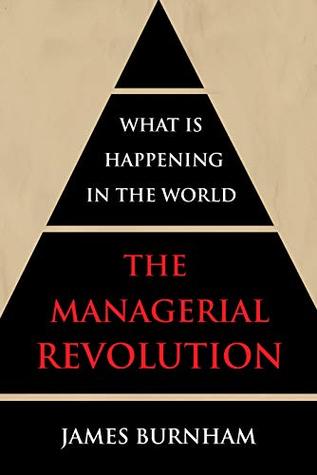More on this book
Community
Kindle Notes & Highlights
Read between
September 11, 2024 - September 19, 2025
During
The firmest representatives of the New Deal are not Roosevelt or the other conspicuous “New Deal politicians,” but the younger group of administrators, experts, technicians, bureaucrats who have been finding places throughout the state apparatus: not merely those who specialize in political technique, in writing up laws with concealed “jokers,” in handing Roosevelt a dramatic new idea, but also those who are doing the actual running of the extending government enterprises: in short, managers. These men include some of the clearest-headed of all managers to be found in any country. They are
...more
The New Deal is not Stalinism and not Nazism. It is not even a direct American analogue of them, for the New Deal is far more primitive with respect to managerial development, and capitalism is not yet over in the United States. But no candid observer, friend or enemy of the New Deal, can deny that in terms of economic, social, political, ideological changes from traditional capitalism, the New Deal moves in the same direction as Stalinism and Nazism. The New Deal is a phase of the transition process from capitalism to managerial society.
Here,
The
We see here, again, why Hitler has always preferred a deal with England to conquering her completely. A deal with England gives the best legal as well as military groundwork for keeping the vast Empire territories attached to the European central area, whereas in the process of the annihilation of England, the Empire tends to swing toward the American area.
The struggle which has begun is the world struggle of the super-states of the future. This struggle, as I have remarked, is bound to be inconclusive. No one of the three central areas is able to conquer definitively the other central areas, and therefore no one state power can in fact rule the world. This will not, however, prevent the struggle from taking place. And, besides, there will be periodically decided just how much of the world will fall within the spheres of each of the super-states. I have outlined in Chapters XII and XV the general forms of the wars and conflicts that may be
...more
This was really proved by the first world war, which was unprofitable, as has often been shown, for the victors as well as for the vanquished. This was not the case with the earlier wars of capitalism, which were almost always profitable for the victors and often for the losers as well. Indeed, the unprofitableness of the first world war was an important demonstration of the fact that it was the last great war of capitalism.
The
Nevertheless, though this now seems possible, it is the less likely variant. There is not much clarity, and there is so much for social groups to lose, and to win. The capitalists are to lose all, or nearly all. The masses, during the course of the transition, will lose the hopes of a free, classless society which the circumstances of revolutionary transition will stimulate in them. There will be much struggle for places in the new ruling class. Revolutionary mass movements, terror, purges, are usual phases of a major social transition. Societies do not seem willing merely to change the old.
...more
second
more,


